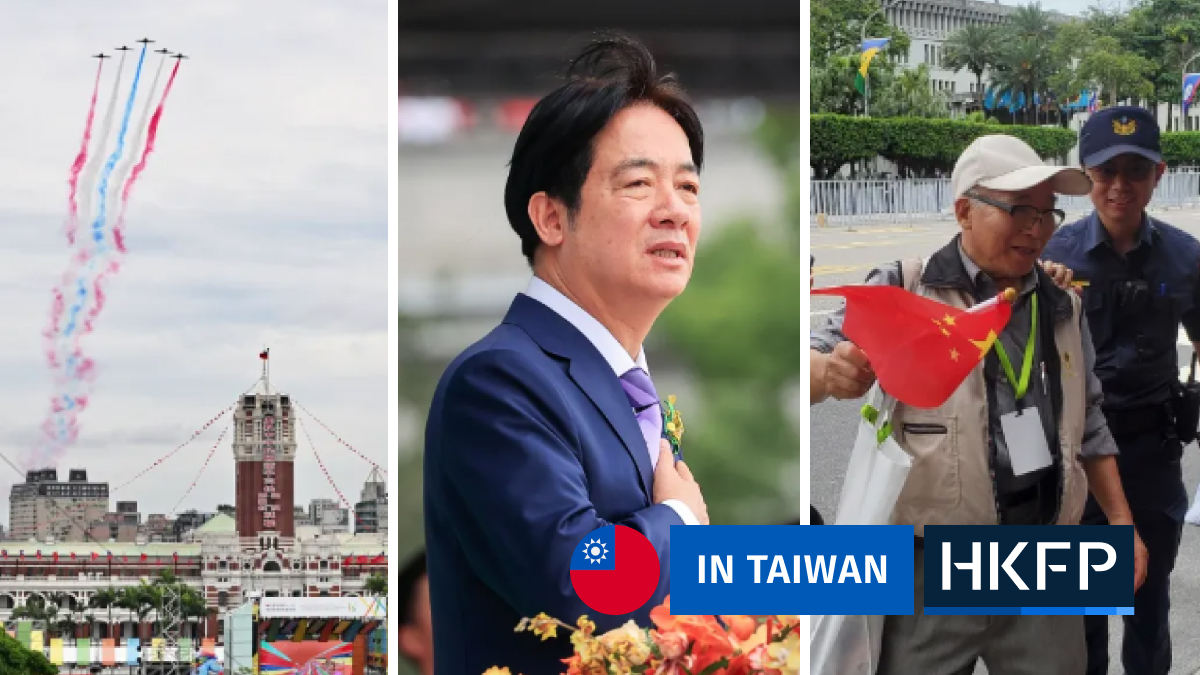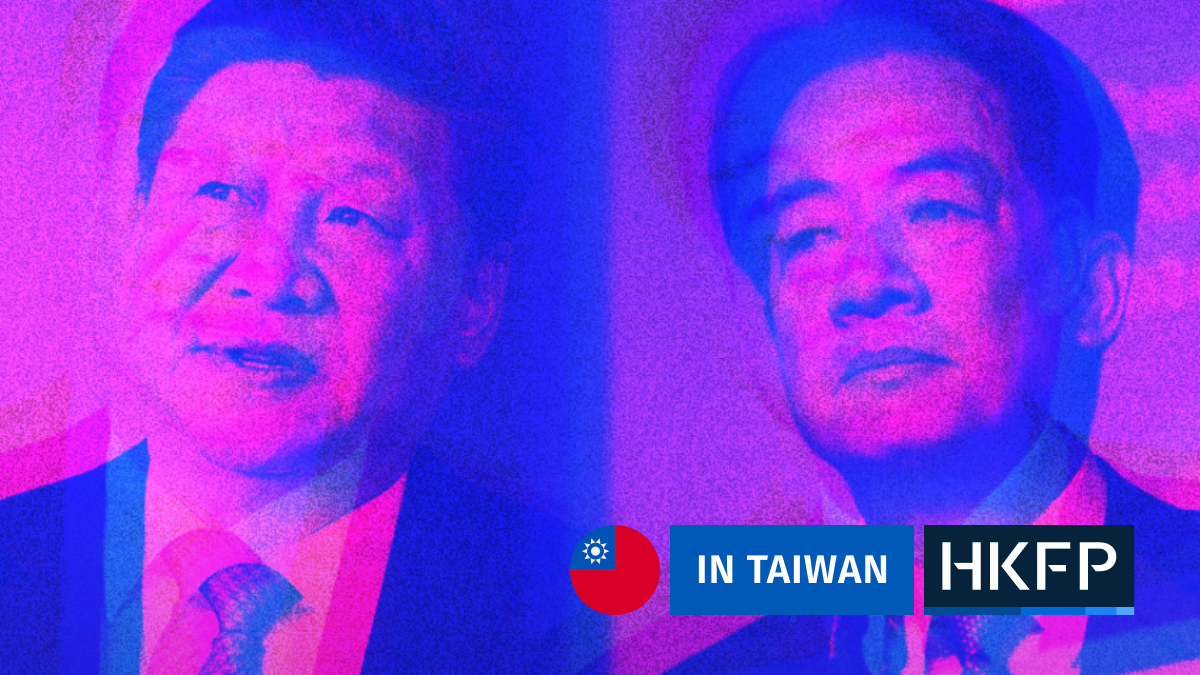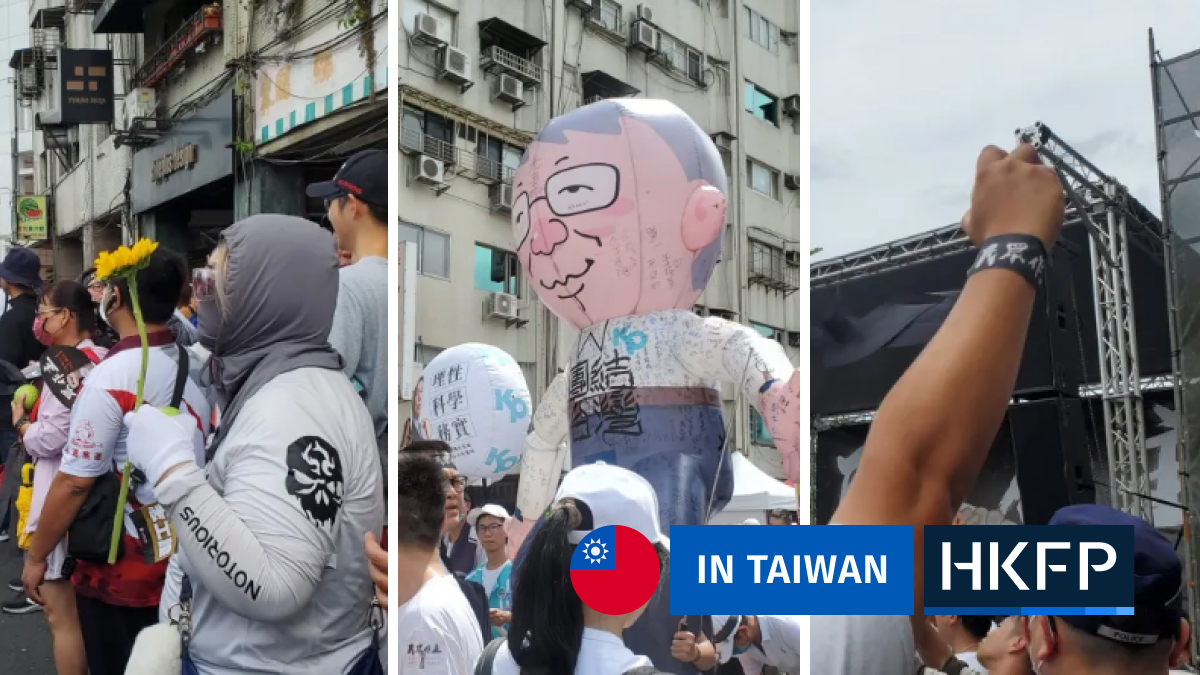Polls opened at 8 am across Taiwan on Saturday as the island’s 19.5 million eligible voters decide who they want as their next president and parliament.
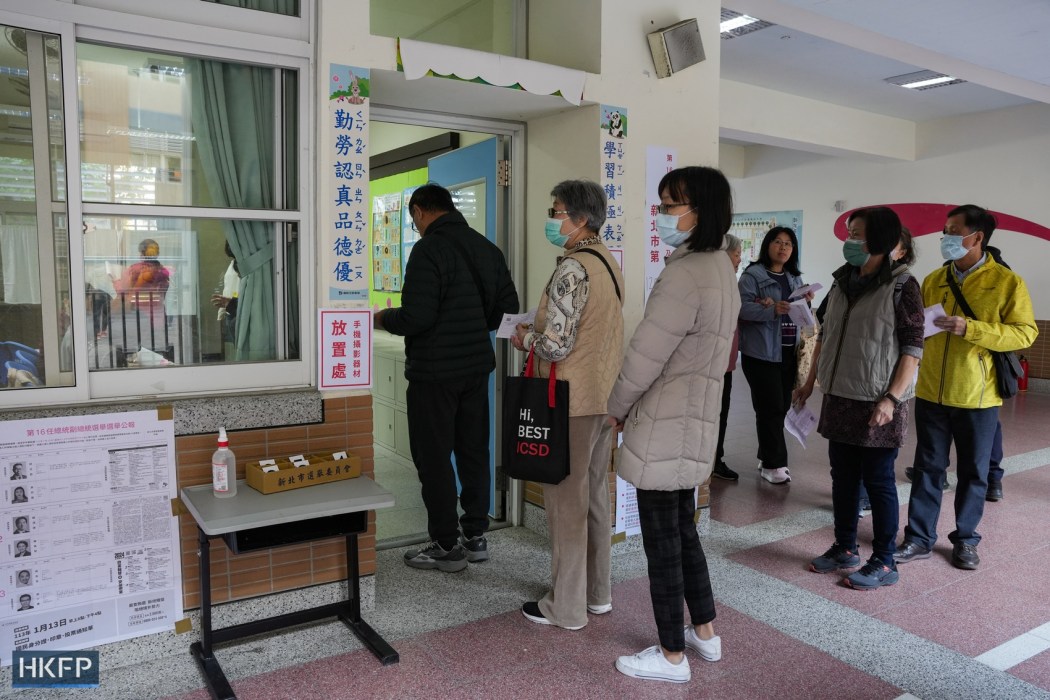
On the top of the ticket for the ruling Democratic Progressive Party (DPP) is current Vice-President William Lai Ching-te, whose running mate Hsiao Bi-khim was Taiwan’s representative to the US. They hope to earn their party a historic third term in office, and are largely running as the “consistency” candidates, vowing to continue the global-facing policies of President Tsai Ing-wen, who has advanced the island’s international standing.
That stance has come at a cost to relations with Beijing, which considers the island a breakaway province to be unified with mainland China by force if necessary.

The opposition Kuomintang (KMT) party candidate, former police officer and mayor of New Taipei City Hou Yu-ih, has warned that the DPP has brought the island to the brink of war and said that a vote for the KMT is a vote for “peace.”
Hou is running alongside media personality Jaw Shau-kong, who earlier this week discussed his friendship with detained Hong Kong newspaper mogul Jimmy Lai and called the city’s One Country, Two Systems model – proposed by Beijing as a means of governance for Taiwan – a “failure.”

The third contender for the presidency is former Taipei mayor and doctor Ko Wen-je, from the Taipei People’s Party (TPP), which was established in 2019. Ko and his vice-presidential candidate, Cynthia Wu Hsin-ying – who worked in finance before joining the legislature and whose father is a billionaire – have presented the TPP as an alternative to the political status quo offered by the DPP and the KMT, who have alternated turns in power since Taiwan’s first democratic election in 1996.
See also: Taiwan election 2024 – The 3 presidential candidates and what they say about relations with China
Voting age is 20 in Taiwan, and people must return to their home counties to cast their ballots. Lai of the DPP travelled to his hometown, the southern city of Tainan, to vote on Saturday morning, while Hou was in the Banqiao district of New Taipei City to place his ballot in the box.

Votes are also being cast for the 113 seats in the island’s parliament, the Legislative Yuan. The publication of polling data in the 10 days ahead of an election is prohibited, but many pundits expect the presidential race to be tight and suggest that no major party will win a majority in the legislature.
Beneath cloudless blue skies in Taipei, a 46-year-old woman who gave her surname as Lin, told HKFP that she had just cast her first ever vote for president. Standing outside the polling station at Hwa Chiang Elementary School in Wanhua District, Lin said she “had no feelings” towards elections previously, but a “third force” in this year’s polls had made it easier for her to understand how politics impacted her life.

“I didn’t know who to vote for in the past, and it felt like my vote did not matter. But this time, with social media and new media, I have realised that political participation is closely linked to my everyday life,” she said in Mandarin.
She described the election as “democratic and peaceful,” saying people were able to express different views without discussions escalating to conflict. The voting arrangement at the polling centre had also been smooth and orderly, she said.

Outside the same polling station, another voter Mr Chen, 75, told HKFP that Taiwanese people were very eager to participate in this year’s election.
Chen, a DPP supporter, said people would fervently support their preferred candidates regardless of their chances of winning.
“This is what a democracy is like,” he said.

He went on to say that the new government must improve Taiwan’s economy, reduce tax, and enhance healthcare services for the elderly.
Outside a polling venue near the Wanhua Sugar Factory, 50-year-old KMT supporter Mr Huang said he believed voters were concerned about the future of Taiwan and were hugely motivated to vote.
He said he wanted a new leader for Taiwan, who would adopt a moderate stance when handling conflict with China.
“We must pay attention to Taiwan’s security. We don’t oppose exchanges with mainland China, but it has to be done under the premise of security,” he said.
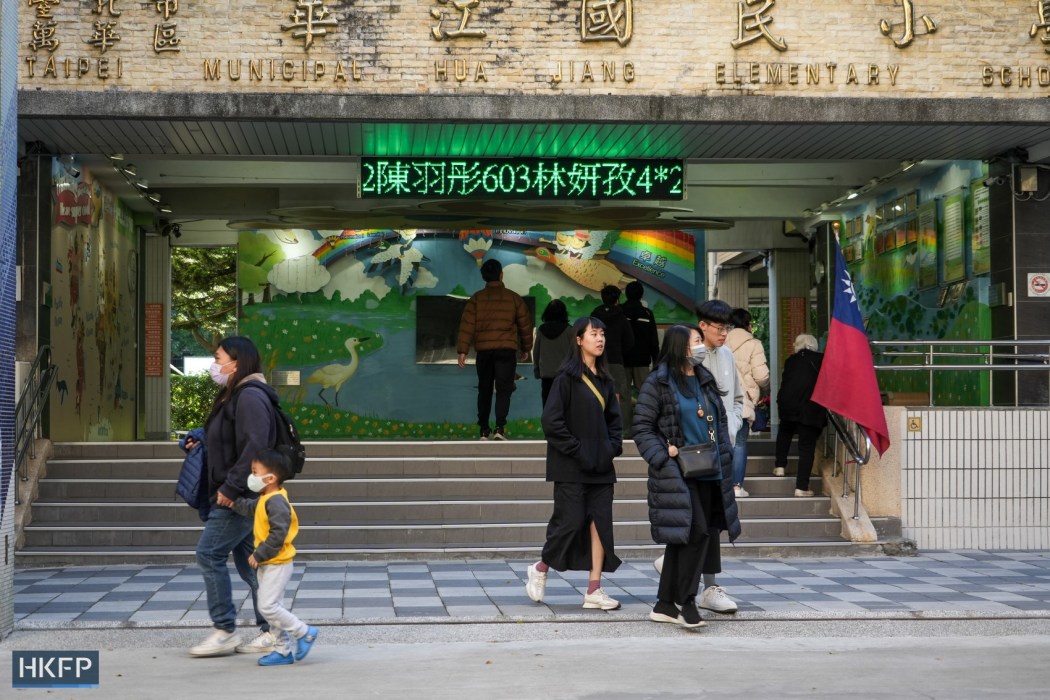
After months of vibrant campaigning and colourful rallies – and political scandals, misinformation, and debates over identity – life in Taipei returned to relative normality on Saturday, with electioneering banned after polls opened.
Voting closes at 4 pm, with the results of the presidential election expected from as early as 6 pm. In previous years, local media have called the winner based on projected vote counts, with the candidates later accepting victory or conceding defeat. The results of the legislative election are expected later in the evening.
Cross-strait relations, wider implications
Taiwan’s election is considered critical, not just for the island’s 23 million residents, but for stability in the Indo-Pacific region and for wider China-US relations.
US Secretary of State Antony Blinken met senior Chinese official Liu Jianchao on Friday, the eve of the polls, and stressed the importance of stable cross-strait relations.
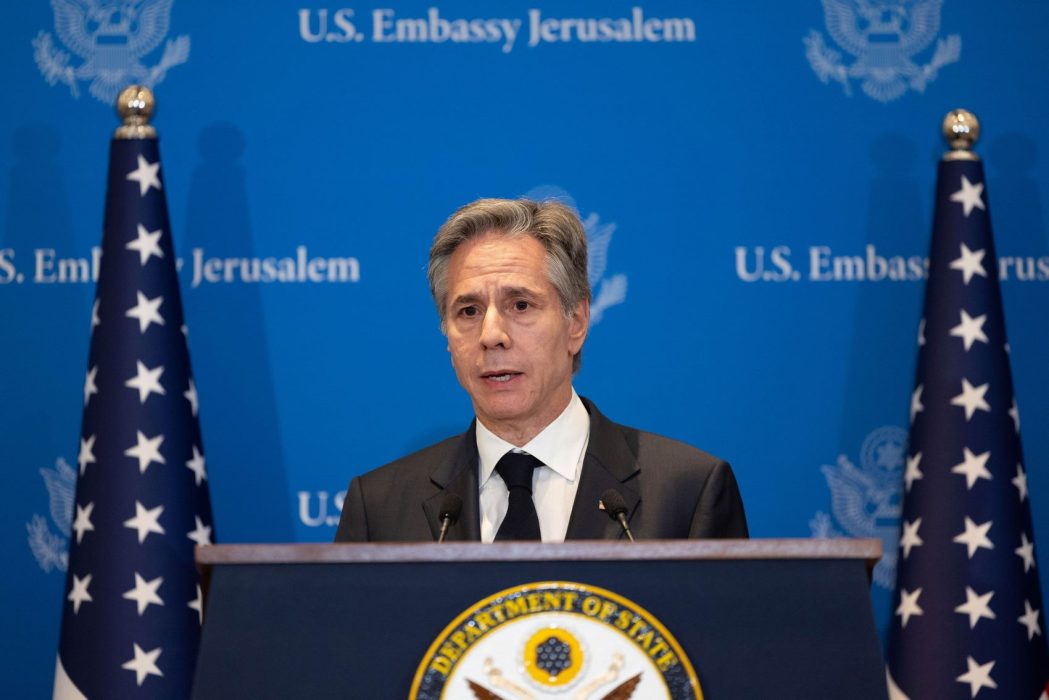
“The Secretary reiterated the importance of maintaining peace and stability across the Taiwan Strait and in the South China Sea,” State Department spokesperson Matthew Miller said in a staetment on Friday.
Liu, minister of the International Liaison Department, “elaborated the Chinese position on relevant issues, stressing that the two sides should move towards each other to promote stable, healthy and sustainable development of China-US relations,” according to a readout his office shared on WeChat.
Additional reporting: Mercedes Hutton
Dateline:
Taipei, Taiwan
Support HKFP | Policies & Ethics | Error/typo? | Contact Us | Newsletter | Transparency & Annual Report | Apps
Help safeguard press freedom & keep HKFP free for all readers by supporting our team

Original reporting on HKFP is backed by our monthly contributors.
Almost 1,000 monthly donors make HKFP possible. Each contributes an average of HK$200/month to support our award-winning original reporting, keeping the city’s only independent English-language outlet free-to-access for all. Three reasons to join us:
- 🔎 Transparent & efficient: As a non-profit, we are externally audited each year, publishing our income/outgoings annually, as the city’s most transparent news outlet.
- 🔒 Accurate & accountable: Our reporting is governed by a comprehensive Ethics Code. We are 100% independent, and not answerable to any tycoon, mainland owners or shareholders. Check out our latest Annual Report, and help support press freedom.
- 💰 It’s fast, secure & easy: We accept most payment methods – cancel anytime, and receive a free tote bag and pen if you contribute HK$150/month or more.
MORE Original Reporting
HKFP has an impartial stance, transparent funding, and balanced coverage guided by an Ethics Code and Corrections Policy.
Support press freedom & help us surpass 1,000 monthly Patrons: 100% independent, governed by an ethics code & not-for-profit.




